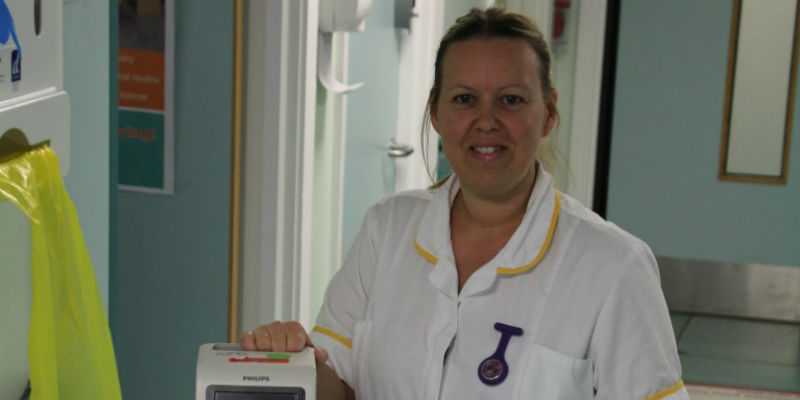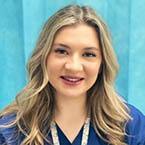
My organisation, Somerset NHS Foundation Trust (FT) works in partnership with the University of the West of England to provide the TNA course, which offers an alternative route into a different type of nursing role: the nursing associate.
You could be a health care assistant (HCA)/support worker from any background and undertake the programme. We have students from mental health, surgical, medical, neonatal, and critical care.
You just need that health care experience and the ambition to achieve a higher level of training within the nursing pathway.
Developing on from the HCA role is a big step because of the extra responsibility. You have to consider why you’re performing each action, not just take instruction; as a nursing associate you need to think about what effects your actions have and whether they benefit a patient or not.
I personally feel this needs to be a shift in mindset that you are prepared for, performing daily tasks like observations shouldn’t just be seen as just a task; they should be used as a tool to monitor your patients and escalate care when necessary.
If you are a HCA already doing this, and are considering developing to be a nursing associate, then you are already thinking this way, so this would be a good pathway for you.
Trainee nursing associates are usually nursing/health care support workers who already work in the setting and are looking to progress in their career.
This course offers a paid apprenticeship route into This course offers a paid apprenticeship route into a band four nursing associate role and gives a foundation degree level qualification.
Many people find this a more logical route as it is developing your skills on the ground, while working within a team that will support and aid your learning – all while you continue to get paid.
The TNA course is a lot of work and it helps hugely if you’re organised and prioritise well.
The hard work is worth it though – passing my TNA course is one of my favourite moments I look back on.
I began my career as an HCA in the surgical admissions lounge at Musgrove Park Hospital. My manager at the time was very keen for me to keep progressing so she pushed me to put myself forward to expand my role.
My manager gave me the confidence to do it and her support was so important to me that I wanted to give back and help people in a similar way.
There was a service improvement project in a different role that my manager encouraged me to apply for, which stood me in good stead for this role.
I now work in the skills hub at Musgrove Park, working with practice facilitators for AHPs, nursing, TNAs, and practice educators as well.
I started in September 2022 so I’ve already seen two cohorts of students begin their training. My role mainly includes reaching out to colleagues in social care settings across Somerset to expand our placement areas into these environments so our trainees can see the way we all work in connection to provide care for our patients.
I check in with the TNAs on our programme. My favourite part of my job is knowing I’m helping people and making a difference.
Most of the TNA placements are currently in traditional health care settings, but I’m working with my colleague at Yeovil District Hospital to try to set up more placements in social care areas.
I’ve been getting in touch with a lot of residential nursing homes on the west side of the county, and meeting them to explain about the course and encourage them to take a TNA on placement.
I’ve secured seven social care placements for the west side of the county so far, and thanks to my colleague in Yeovil we have even more in the east side of the county.
It hasn’t always been easy, and some homes were hesitant for reasons we fully understand. Hosting a placement means their existing colleagues see development routes into other roles, however, most homes have come to see the benefits of developing their colleagues, and we have a couple who are coming forward for the programme.
I believe many HCAs would be brilliant nursing associates, with all their knowledge and experience, and we just need to give them the confidence to go for it.
We need to promote the breadth of nursing roles and the TNA route into nursing as an alternative to the now traditional university degree.
As a nursing associate, your scope of practice is wider than the HCA, because you have a registration, but also you continue to be supported and have your practice overseen by senior nursing colleagues.
It’s a new role so we're only just beginning to explore what it can lead to.
There are extraordinary roles out there for extraordinary nursing associates. Who knows where your registration may lead?


 Share on LinkedIn
Share on LinkedIn




